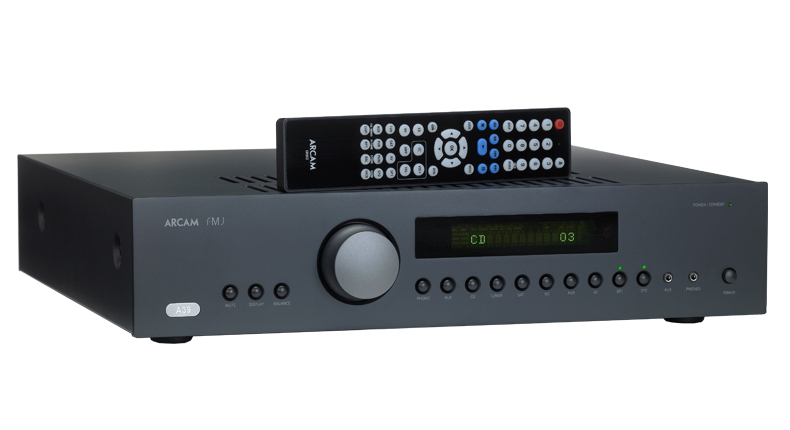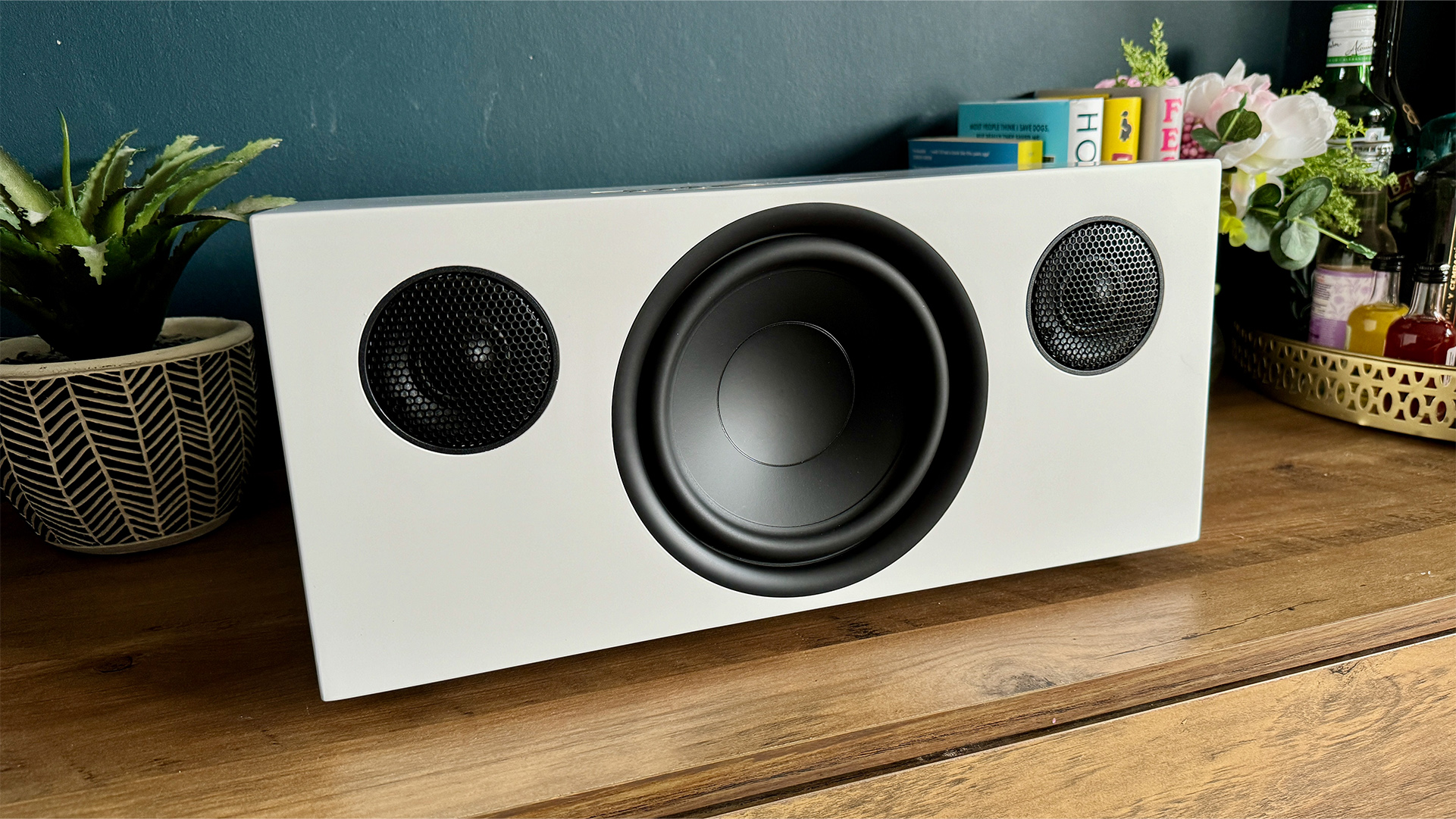What Hi-Fi? Verdict
Arcam’s A39 is a powerful, authoritative stereo amplifier, but it needs to pay a little more attention to timing and subtle detail to be the full package
Pros
- +
Big soundstage, huge sense of scale and authority, decently detailed
- +
Tonally neutral
- +
Stable stereo imaging
- +
Weighty bass
- +
Unfussy with speaker pairing
Cons
- -
Pipped by the best in timing and insight
- -
Could be more subtle
Why you can trust What Hi-Fi?
Arcam’s high-end FMJ family of integrated stereo amplifiers has already tasted success in 2014, with a Product of the Year Award for its excellent FMJ A19.
Now it’s the turn of the range’s middle child, the A39, to show us what it can do in the £1500 market.
Build and design
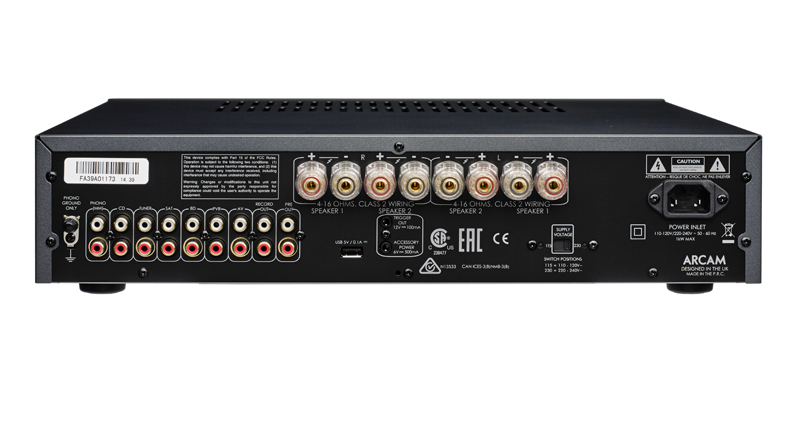
When it comes to design, it shares a similar look to the rest of the family, with a sturdy, black steel and aluminium shell, front-mounted controls and a dimmable LCD panel. A green light will show above the source you have selected – you just need to select the corresponding button to choose what you want to hear.
There are a total of six labelled line level inputs for hooking up your various bits of kit, alongside a moving magnet phono stage (which can be bypassed for a further line level in should you need it) and two analogue outs, with both a 3.5mm input and 3.5mm headphone out mounted on the front.
There are no digital inputs, but there is an upgrade path offered in the form of a second internal power supply, which can drive products from Arcam’s rSeries, including the rDAC, rPAC, rLink and rBlink.
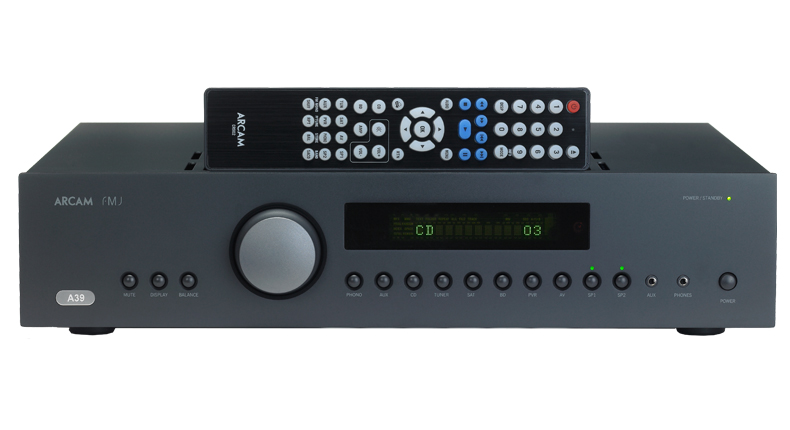
Inside the A39, Arcam has used a class G amplifier, which we’ve previously seen in its home cinema amplifiers. This basically makes the amp capable of big, powerful sound without wasting electricity as heat.
The result is not just a more efficient, environmentally friendly amp, but also a much cooler running one. Even when we pushed it to volume levels unlikely to be used regularly at home, it remained relatively cool, and certainly cooler than its big competitor, the Rega Elicit R.
It also offers a rather impressive 120-watts per channel into 8 ohms, and 240-watts into 4 ohms, which should make it capable of driving even the most demanding of speakers.
Performance
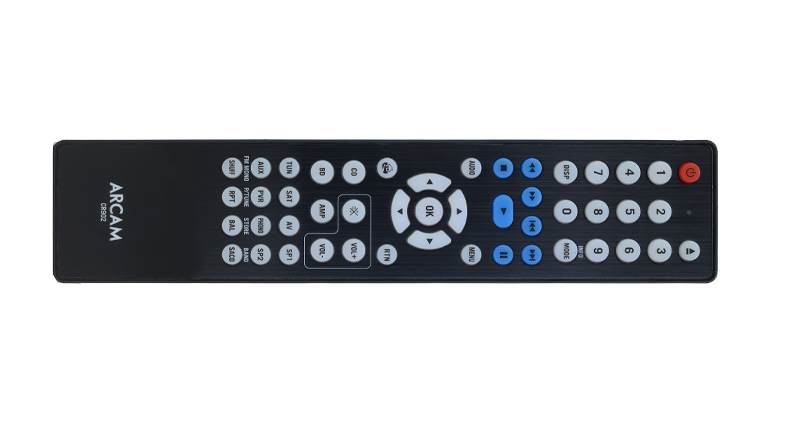
The power at its disposal is one of the first things you’ll notice, with the A39 offering an impressively large soundstage and a superb sense of scale to whatever you throw at it. There’s real punch here and bass notes are weighty and precise, yet agile enough to keep the track driving forward with a decent level of precision.
However, while there’s plenty of authority in the way it handles tracks, and an eagerness to please with a get-up-and-go attitude, it still can’t quite match the rhythmically adept Rega Elicit R for outright timing.
Play Fleetwood Mac’s The Chain and there’s a natural fluidity to the Rega that the Arcam just can’t match – the various layers of instruments and vocals don’t quite combine and complement one another as seamlessly as they do with its competitor.
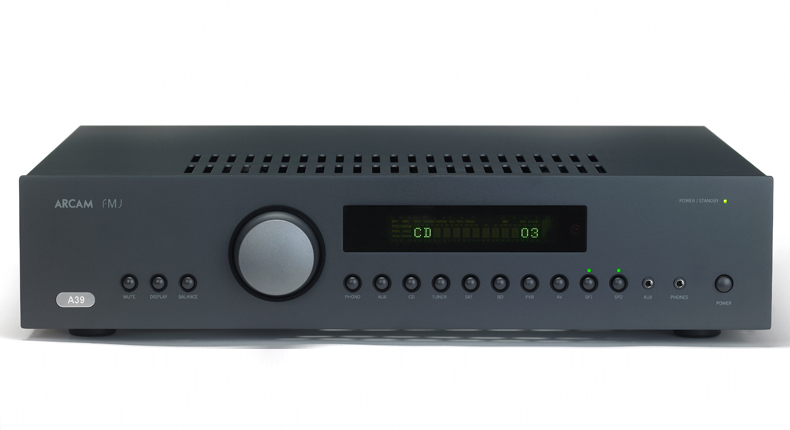
Switch up the tempo to India Arie’s Ready For Love, and the A39 lacks the Rega’s or even the Roksan K3's level of insight to deliver every last drop of emotion and nuance in Arie’s intimate delivery. It’s not miles off, but at this level it’s the small differences that matter, and losing these subtle details makes the Arcam feel a little restrained and impersonal by comparison.
The Arcam is very much at home with big volume, showstopper tracks; this is when it does its best work dynamically. It’s the lower levels of dynamics, the softer, more delicate details that it struggles to show off with quite the same authority.
Tonally it’s neutral and well-balanced, and stereo imaging is stable, keeping a strong soundstage even when tracks get busy or complicated.
Leading edges aren’t always the smoothest, packing impact but without much depth, and as such we’d be careful with the quality of tracks you play through the A39 – it’s unlikely to be the most forgiving with lower quality recordings.
Verdict
There's still plenty to be had from the Arcam A39, particularly if scale and authority come high up on your must-have list.
However, with the Rega Elicit-R offering more refinement and attention to detail for £100 more, not to mention the cheaper Roksan also pipping it for absolute detail, the A39 needs to do better with its subtler side to get the full five at this price.
What Hi-Fi?, founded in 1976, is the world's leading independent guide to buying and owning hi-fi and home entertainment products. Our comprehensive tests help you buy the very best for your money, with our advice sections giving you step-by-step information on how to get even more from your music and movies. Everything is tested by our dedicated team of in-house reviewers in our custom-built test rooms in London, Reading and Bath. Our coveted five-star rating and Awards are recognised all over the world as the ultimate seal of approval, so you can buy with absolute confidence.
